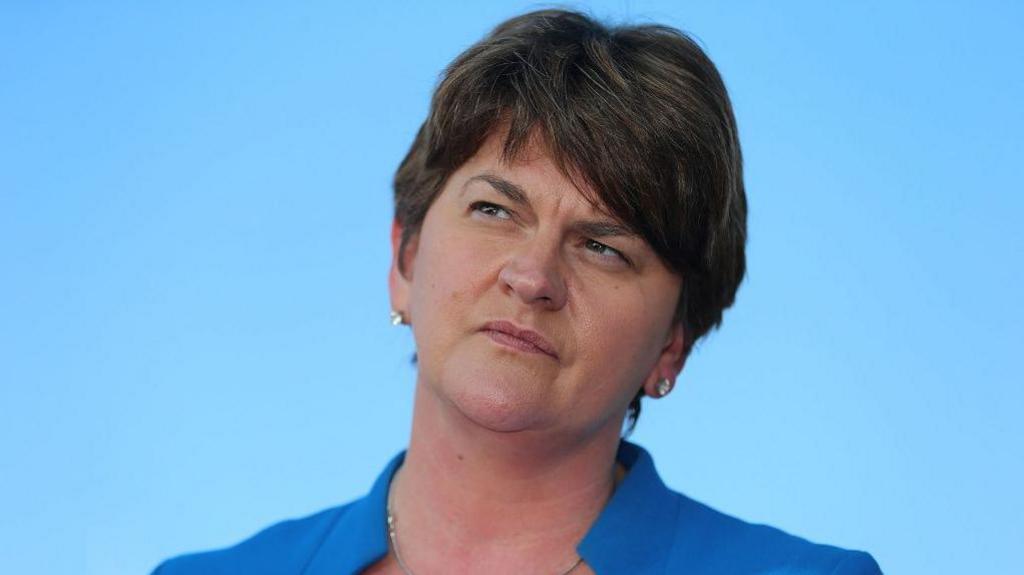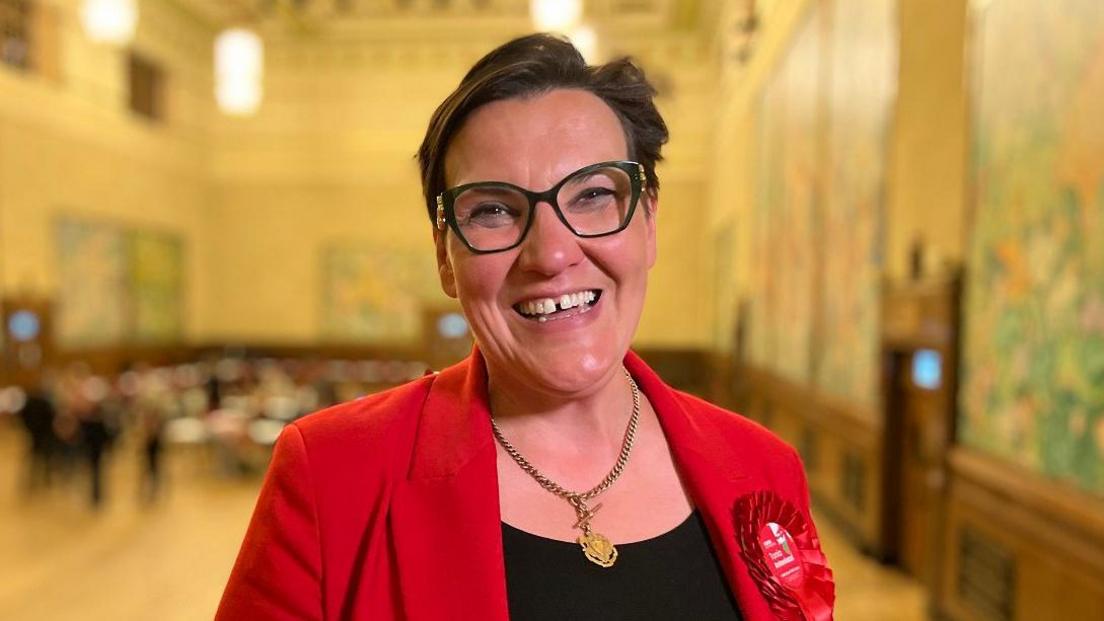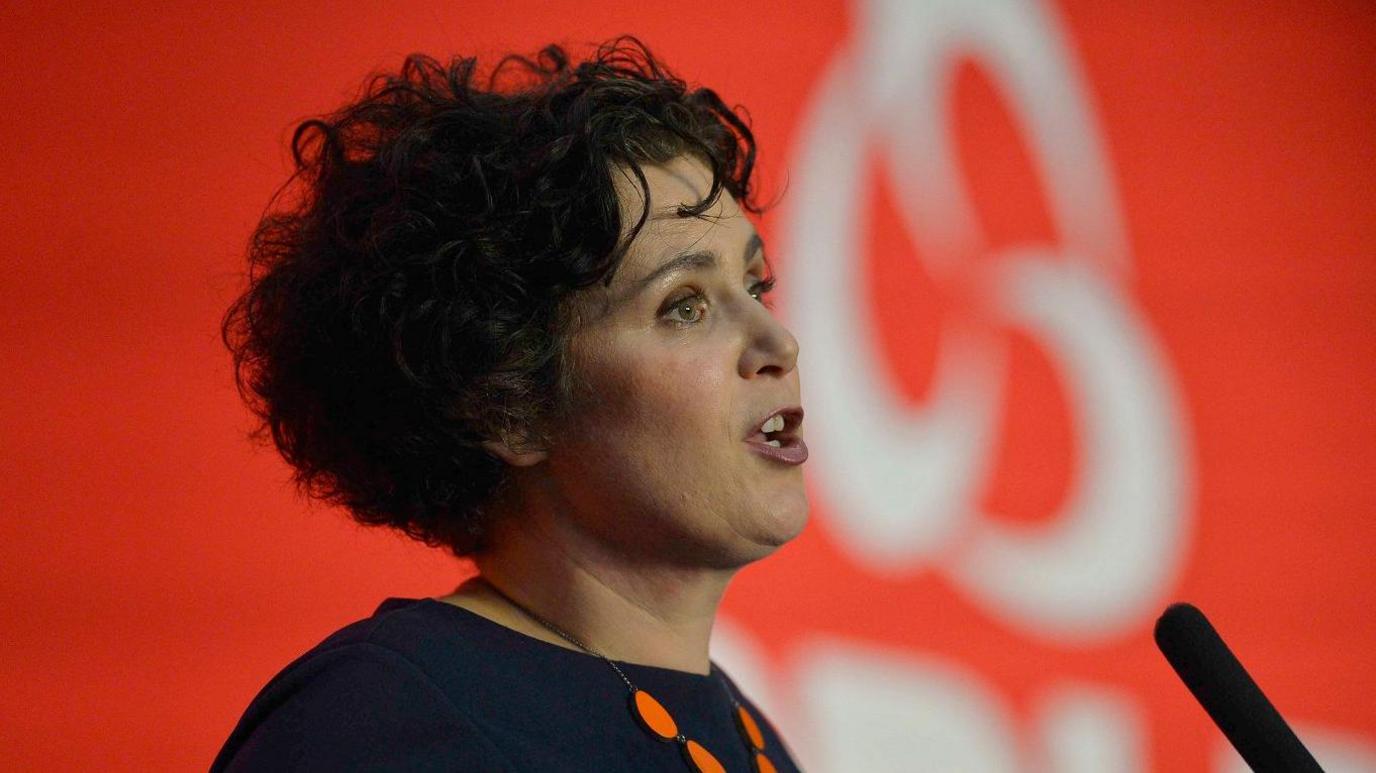Former NI first minister backs Afghanistan cricket boycott

Baroness Foster said that while she generally does not favour boycotts, the actions of the Taliban regime mark Afghanistan out as "a rogue nation"
- Published
Former Northern Ireland first minister Baroness Foster has called for the England men's cricket team to boycott a match against Afghanistan.
She is one of seven MPs and peers from Northern Ireland, along with more than 160 other parliamentarians, to have backed a boycott due to the Taliban regime's oppression of women.
Foster told BBC News NI "the actions of the regime in Afghanistan absolutely mark the country out as a rogue nation, especially in relation to their continuing repression of women".
Social Democratic and Labour Party (SDLP) MP Claire Hanna said Afghanistan had "mixed sport and politics very directly by imposing such draconian restrictions on women to play sport".
Other Northern Irish politicians from the Democratic Unionist Party (DUP), Alliance Party and Ulster Unionist Party (UUP) have also joined the call for a boycott.
In response, the England and Wales Cricket Board (ECB) has called for a unified response to action against Afghanistan, but did not commit either way to a boycott.
England are due to face Afghanistan in cricket's Champions Trophy on 26 February, but some UK politicians want the team to refuse to play the 50-over match in order to take a stand against the Taliban regime's assault on women's rights.
Women have been banned from education, sport and much of public life since the Taliban came to power in Afghanistan in 2021.
A letter to the ECB, written by Labour MP Tonia Antoniazzi, urged England to boycott the match to "send a clear signal" that "such grotesque abuses will not be tolerated".
Antoniazzi is also chair of the Northern Ireland Affairs Committee at Westminster.
"The blatant denial of opportunities for Afghan women cricketers is appalling and forms just one element of the Taliban's unconscionable oppression of women and girls that continues unabated," the letter continued.

Labour MP Tonia Antoniazzi sent a letter to the ECB urging it to boycott the match
The letter also said that members of the Afghan women's cricket team had fled the country and are now in exile.
Among those to sign the letter calling for the ECB to boycott the match are the former Labour leaders Jeremy Corbyn and Lord Kinnock, and the Reform UK leader Nigel Farage.
The Northern Ireland signatories are Hanna, Alliance MP Sorcha Eastwood, Ulster Unionist MP Robin Swann and four members of the House of Lords: Baroness Foster; Lord Morrow; Baroness Ritchie; and Baroness O'Loan.
Foster told BBC News NI she had decided to sign the letter to the ECB chief executive Richard Gould because of the Taliban's treatment of women.
"Any way that we can raise the plight of women in Afghanistan I will absolutely be there because it's getting more bizarre by the week, the way in which the Taliban are coming down on the freedom of women.
"I'm not a fan of boycotts, however the actions of the regime in Afghanistan absolutely mark the country out as a rogue nation, especially in relation to their continuing repression of women."

Claire Hanna Afghanistan had mixed sport and politics
Hanna said it was an "issue of solidarity".
"We're all aware of - despite promises to the contrary - the deteriorating situation for women in Afghanistan," she said.
"Sports organisations and everybody who have the opportunity to demonstrate those principles should take them.
"Afghanistan have mixed sport and politics very directly by imposing such draconian restrictions on women to play sport, that's a deeply political act they have taken."
In response to the letter calling for a boycott, ECB chief executive Richard Gould said the governing body "is committed to finding a solution" that "upholds the rights of women and girls in Afghanistan".
He also said a co-ordinated approach by the International Cricket Council (ICC) would be "significantly more impactful than unilateral actions by individual members".